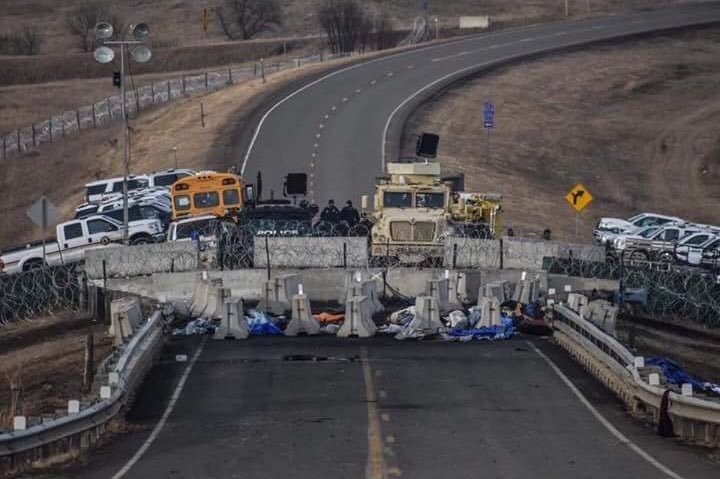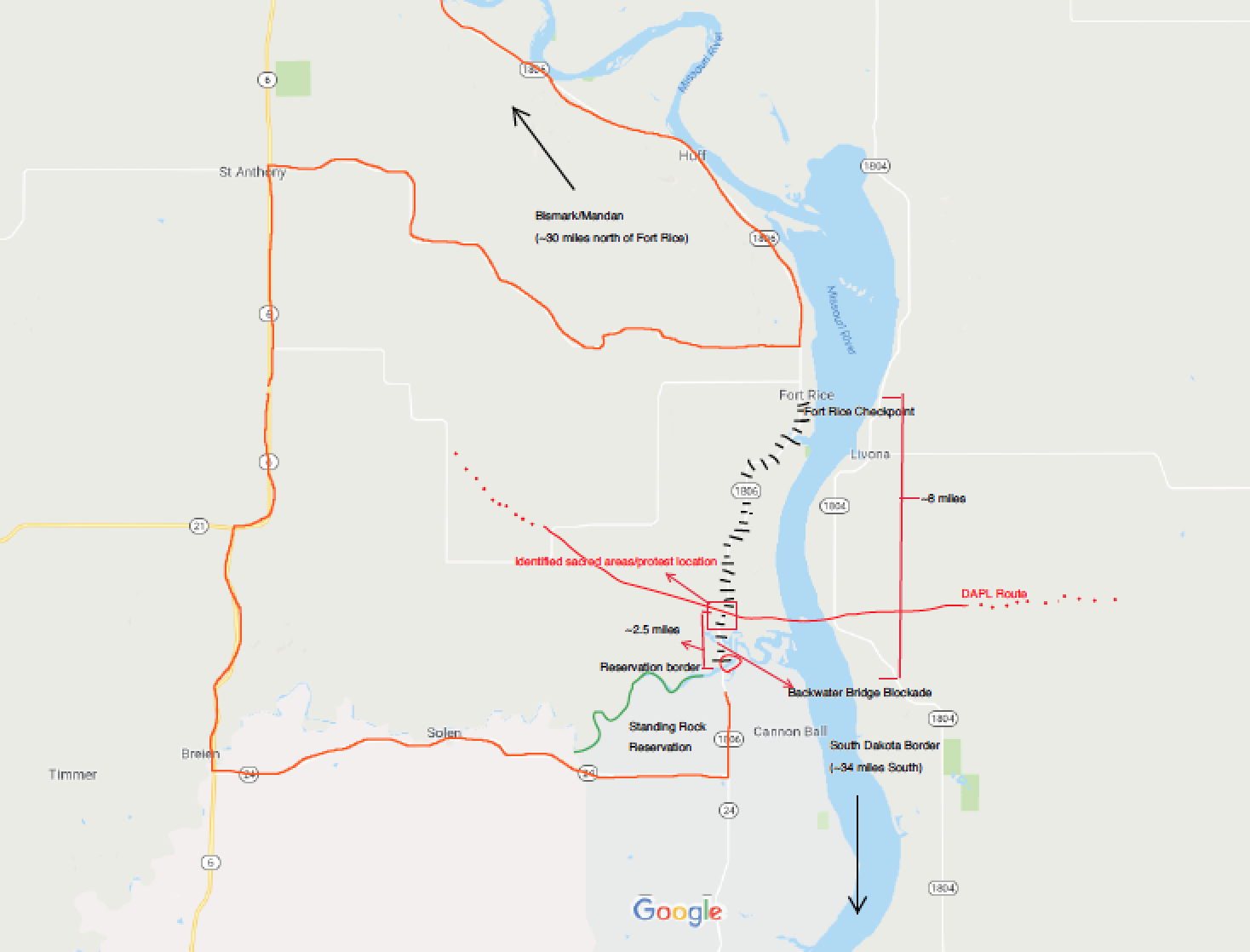Columbia Law School Lecturer Noah Smith-Drelich and Professor Bernard E. Harcourt Challenge Standing Rock Civil Rights Violations
Thunderhawk v. County of Morton, North Dakota
Media Contact: Public Affairs, 212-854-2650 or [email protected]
New York, October 26, 2018—Cissy Thunderhawk, Wašté Win Young, and the Reverend John Floberg filed a class action lawsuit on Oct. 18 in the U.S. District Court for the District of North Dakota challenging a number of civil rights violations that arose during the Standing Rock movement to oppose the construction of the Dakota Access Pipeline (DAPL). They are represented by Columbia Law School Lecturer in Law Noah Smith-Drelich and Professor Bernard E. Harcourt, founding director of the Columbia Center for Contemporary Critical Thought.

At the height of the Standing Rock demonstrations in October 2016, state and local law enforcement officials indefinitely closed down the primary road connecting the Standing Rock Reservation to the main public sites in contention. The nine-mile road closure, which lasted five months, prevented access to these sites in violation of the plaintiffs’ right to assemble, pray, express themselves, and freely travel. The specific stretch of highway was of particular significance given the neighboring location of sacred and ceremonial sites of immense importance to the Lakota people.
“The unequal reach of the road closure rendered it especially pernicious,” said Smith-Drelich, who most recently served as Staff Attorney for the ACLU’s North Dakota, South Dakota, and Wyoming affiliates. “For employees of the private pipeline company and for some local residents, the public right-of-way was made available. But for tribal members and their allies, irrespective of the time of day or day of the week, it was not. This is the exact sort of policy that the Constitution is meant to guard against.”
The plaintiffs in this case, Cissy Thunderhawk, Wašté Win Young, and the Reverend John Floberg, are, respectively, a small-business owner, a former Historic Preservation Officer of the Standing Rock Sioux Tribe, and Standing Rock’s Episcopalian minister. They, and the class they seek to represent, allege violations of their First Amendment rights to speech and free exercise, of their fundamental right to travel, and of their rights under the Commerce Clause.
“The road closure was a targeted response—a sanction meant to punish, marginalize and dehumanize Tribal people who live on Standing Rock that needed to travel this road every day out of necessity,” said Wašté Win Young. “The road closure was also an attempt to slow and deter the thousands of people who had come to support an indigenous community opposed to the construction of a pipeline that their community had never consented to.”
Through the suit, the plaintiffs hope to enjoin any such civil rights violations in the future and recover money damages for the substantial harms inflicted on the community and movement by this unnecessary and overbroad road closure. “It is my sincere hope that this case will be heard,” Young noted, “and that in the end, the truth will prevail.”
“Given the dearth of alternative routes in this rural area, the closure added substantially to the time and stress of traveling between the Standing Rock Reservation (and the no-DAPL camps located on its northern border) and Bismarck—the region’s largest city, as well as the site of the only nearby major hospital, airport, and shopping,” Smith-Drelich added.

The litigation forms part of the Practical Engagements initiative of the Columbia Center for Contemporary Critical Thought (CCCCT), which engages in pro bono public-interest representation. Last year, the CCCCT organized a seminar on Standing Rock that explored many of the legal issues and civil rights violations associated with the Standing Rock protest movement.
“From our discussion at the Standing Rock seminar and other documents, it became clear that by closing the road, the State and local authorities not only sought to deprive plaintiffs of a key forum and audience for their protected First Amendment activity, but to penalize both the Tribe and the camps for their opposition to DAPL—and to secure for the State a better negotiating position vis-a-vis the no-DAPL movement,” Harcourt said.
More information and documents on the lawsuit are available here: https://cccct.law.columbia.edu/content/standing-rock-litigation
# # #
